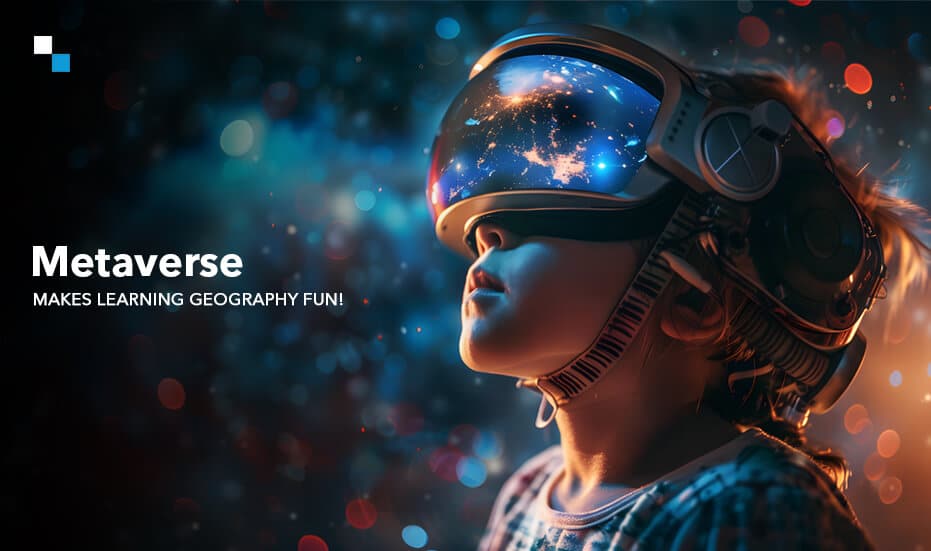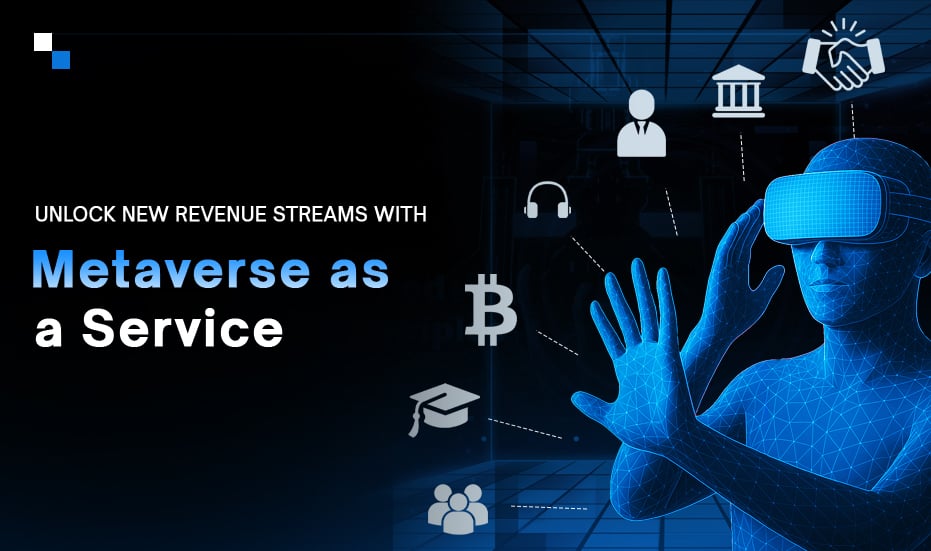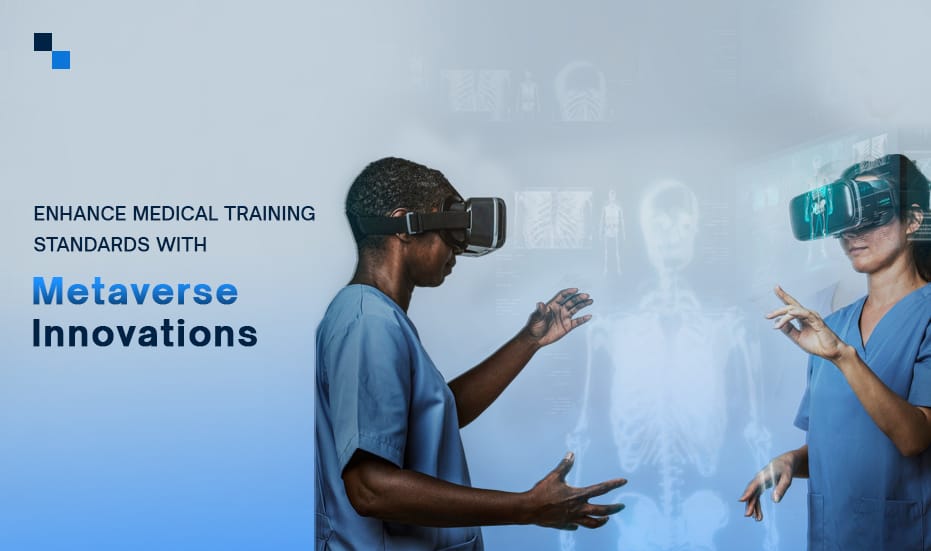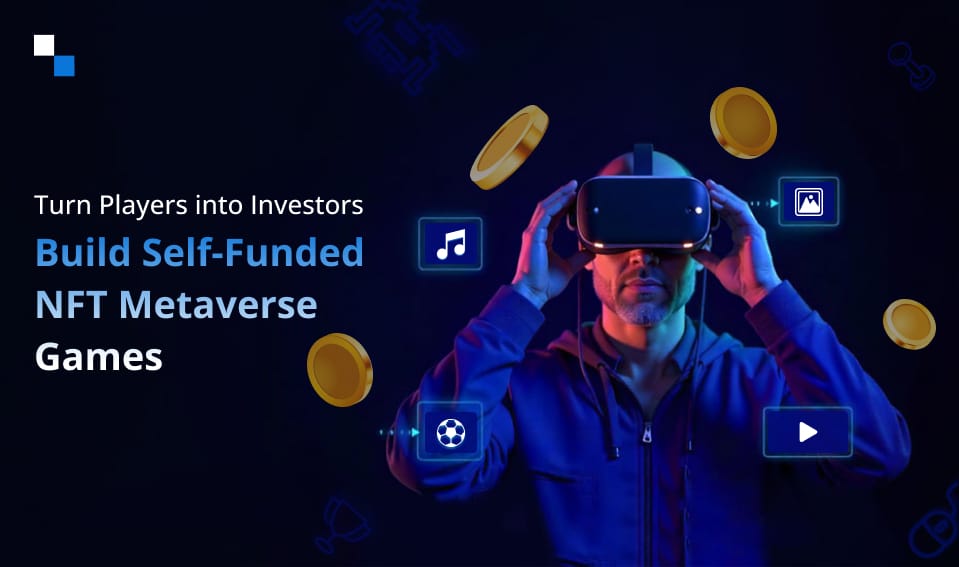
3 Ways Smart Contract Development Streamlines Supply Chain Management
May 17, 2024
Top 4 DePIN Crypto Token Projects You Need on Your Crypto Radar 2024
May 17, 2024Gone are the days of flipping through dusty textbooks and struggling to visualize faraway lands on flat maps. Today, education is stepping into a new era – an era of immersive experiences and boundless exploration. With the power of a metaverse platform for education, you enter a virtual world where students can break free from the confines of the traditional classroom and embark on a journey of discovery.
No wonder, traditional geography lessons often fall short in engaging students. Static images and textbooks leave much to the imagination, hindering students from truly understanding the scale, beauty, and complexity of our planet. However, with metaverse for education students can virtually scale the peaks of Mount Everest, explore the bustling streets of Tokyo, or dive into the depths of the Great Barrier Reef.
This blog explores the revolutionary potential of VR field trips within the metaverse platform for education. If you are looking to make learning fun and easy, this is the right choice. Want to know how then get along this article and plan your metaverse platform just after that!
Are you ready?
VR Field Trips Power Up the Metaverse Platform for Education
Virtual Reality (VR) technology has the power to transform education by creating immersive and interactive experiences that transcend the limitations of traditional classrooms. Students when strapped into VR headsets, will not just look at pictures of the Grand Canyon but actually feel like they’re standing on the rim, gazing out at the vast expanse of colorful rock formations. This immersive quality engages students on a whole new level, sparking curiosity and igniting a desire to explore further.
Now, VR field trips within the metaverse platform for education take this concept a step further. No longer confined to static images, these field trips transport students to different geographical locations around the world. One moment, they can be trekking through the dense Amazon rainforest, surrounded by the sounds of exotic birds and the rustling of leaves. Next, they can scale the snow-capped peaks of the Himalayas, experiencing the breathtaking views and feeling the crisp mountain air (virtually, of course!).
Gamified Learning Takes Flight with the Metaverse for Education
With the help of virtual reality field trips, the metaverse platform for education gives geography classes an exciting dose of real-world exploration. There are numerous benefits-
Supercharge Student Engagement and Knowledge Retention:
Teaching geography has traditionally relied heavily on textbooks and lectures. They are useful, but they frequently fall short of expressing the excitement of travel. Using VR field trips in the metaverse educational platform—a ground-breaking instrument that turns education into an immersive, interactive game.
Contrarily, a classroom buzzes with excitement as students strap on VR headsets. Now they’re not just memorizing facts about the Amazon rainforest; they’re standing beneath the towering canopy, feeling the humidity on their skin and hearing the calls of exotic birds. This immersive environment ignites a sense of curiosity and adventure, making them eager to delve deeper into the subject matter.
Learning by Doing: Interactive Exploration for Deeper Understanding
VR field trips go beyond passive observation. Students aren’t just looking at pictures anymore; they’re actively exploring these geographical features. A student is virtually scaling Mount Everest, feeling the icy wind against his virtual face as he navigates the treacherous terrain. Similarly, they can be kayaking down a virtual Amazon River, dodging branches and encountering virtual wildlife. This interactive learning experience allows them to grasp the scale, complexity, and beauty of geographical features in a way that static images simply cannot.

Transforming Knowledge Retention into Long-Term Learning
The interactive nature of VR field trips isn’t just fun, it’s incredibly effective. Learning by doing is a powerful tool that boosts knowledge retention. By experiencing geographical features firsthand, students develop a deeper understanding of their characteristics and how they interact with each other. This translates to better performance on exams and a lasting fascination with the world around them.
A World of Cultures at Your Fingertips: Experiencing the Human Story
Geography isn’t just about mountains and rivers; it’s about the people who inhabit these landscapes. VR field trips allow students to transcend geographical limitations and experience diverse cultures firsthand. They can visit bustling marketplaces in Marrakech, explore the ancient ruins of Angkor Wat, or witness a traditional Haka dance in New Zealand. This exposure to different cultures and ways of life fosters global awareness, empathy, and a broader appreciation for our planet’s rich tapestry.
By harnessing the power of VR field trips, the metaverse platform for education is poised to revolutionize geography learning. It’s a gamified learning experience that fosters engagement, knowledge retention, and a deeper understanding of our world. So, ditch the dusty textbooks and prepare to embark on an unforgettable virtual journey!
How Metaverse Learning Platform Development Make Geography Learning Fun?
The metaverse for education, powered by VR field trips, transforms traditional geography lessons from rote memorization to immersive exploration. Let’s explore how VR breathes life into diverse geographical topics:
1. Exploring Historical Landmarks
Forget flipping through black-and-white photos of ancient wonders. VR field trips transport students directly to iconic historical landmarks. Like walking along the Great Wall of China, experiencing its sheer scale and the breathtaking views from its ramparts – all becomes realistic. This immersive experience fosters a deeper connection to historical events and allows students to visualize the past in a way that textbooks fail to deliver.
2. Journey Through Diverse Habitats
Textbooks often depict ecosystems as flat pictures. VR field trips offer a dynamic alternative. Students can virtually dive into the heart of a rainforest, surrounded by towering trees, vibrant flora, and the cacophony of exotic wildlife. They can explore a vast desert landscape, feeling the heat on their virtual skin and observing the unique adaptations of desert plants and animals. They can swim alongside virtual fish in a coral reef, witnessing the breathtaking biodiversity and the delicate balance of this underwater ecosystem. These virtual journeys allow students to learn about different habitats and the intricate relationships between living organisms and their environments.
3. Become a Junior Geologist
VR field trips aren’t limited to flat terrain. Students can embark on expeditions to study geological formations up close. They can virtually climb a volcano, experiencing the rumbling tremors and witnessing the impressive flow of lava. Or exploring the Grand Canyon, marveling at the layers of rock formations and learning about the forces that shaped this natural wonder. This interactive exploration allows students to analyze geological processes in a safe and engaging way, fostering a deeper understanding of the Earth’s history and structure.
4. Experiencing Hurricanes and Monsoons
The power of nature can be awe-inspiring and destructive. VR field trips offer students a safe way to experience extreme weather events firsthand. Imagine them standing on a virtual beach as a hurricane approaches, witnessing the rising storm surge and the power of wind. Or picture them experiencing a virtual monsoon, observing the torrential rainfall and its impact on the environment. These immersive experiences provide a powerful learning tool, fostering an appreciation for the forces of nature while keeping students safe from harm.
These are just a few examples of how VR field trips within the metaverse platform can revolutionize geography lessons. By bringing the world to life in a virtual space, this innovative technology has the potential to ignite a passion for learning and transform students into lifelong explorers of our planet.

How Antier Can Help?
The metaverse platform for education, powered by VR field trips, offers a glimpse into the exciting future of geography learning. This innovative technology transcends the limitations of traditional textbooks and lectures, transforming geography lessons into immersive and interactive experiences. Students become active participants, not passive observers, fostering a deeper understanding and appreciation for our diverse world.
Antier, a leading metaverse development company, can help you unlock the transformative potential of the metaverse platform for education. We possess the expertise and experience to design and develop engaging VR field trips tailored to your specific curriculum needs. Whether you want to transport students to the heart of the Amazon rainforest or allow them to climb the peaks of the Himalayas, we can make it happen.
Ready to take your geography lessons to the next level? Connect now!



